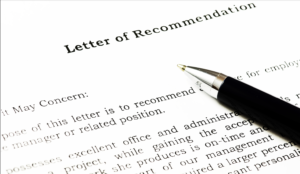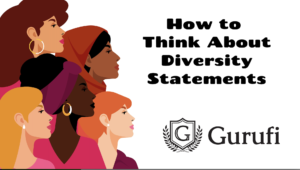
Letters of recommendation are hugely important parts of your application. Having a third party assess your skill, talent, experience, accomplishments, potential, and maturity provides admissions committees with valuable data. Unfortunately, because this is an “outsources” part of the application, many applicants aren’t sufficiently thoughtful about the process, thus hurting their chances of admission. Here are the five most common mistakes that I’ve seen clients make. For additional thoughts, check out this extended YouTube video we made.
- Requesting a letter of recommendation too late. It is critical to allow enough time for the individual writing the letter of recommendation to finish the assignment. A decent rule of thumb is to request a letter at least one month ahead of time. If you wait until the last minute, your letter may not be as effective as it may be. Remember, you’re asking someone for a favor, so do what you can to make it easy for them as possible.
2. Asking the incorrect person. It is critical to ask someone who is familiar with you and can speak to your skills and successes. This might be a lecturer, supervisor, or mentor who has worked with you closely and can offer concrete instances of your abilities and successes. Too often, applicants will seek letters from big names who might not actually know them well. In these instances, you’re going to get a pretty vanilla recommendation that just doesn’t move the needle.
3. Failure to provide adequate information. It is critical to provide the person composing the letter with all relevant information about the opportunity for which you are seeking, including the requirements and deadlines. The writer will be able to personalize the letter to the individual opportunity, making it more effective. If you have it, provide a copy of your Personal Statement and CV. Offer to sit with them for a chat about it as well.
4. Failure to follow up. After asking someone to write a letter of recommendation, it is critical to follow up to verify that the letter is finished and delivered on time. This is especially true if a deadline is approaching.
5. Failure to thank the writer. This is basic human kindness, but it’s also a smart life strategy. People like to feel appreciated, so if someone does you a favor, let them know. They’ll be more likely to go the extra mile for you in the future. It is essential to express gratitude for the time and effort that the person composing the letter has put into the assignment. A simple thank-you message or email might go a long way toward improving your relationship with the writer.
For more help with your personal statement, check us out at Gurufi.com. Our personal statement editors and consultants have decades of experience helping clients get into top Masters and Ph.D. programs in STEM, humanities, fine arts, and social sciences. Our specialty is helping you craft compelling personal statements that move the needle in your admissions process! For questions, shoot us an email at service@gurufi.com. Check us out on Facebook, Twitter, and LinkedIn.
More free resources:
- “How to Request a Letter of Recommendation” (n.d.). The Graduate School. Retrieved from https://www.grad.illinois.edu/career-services/how-request-letter-recommendation
- “How to Request a Letter of Recommendation” (n.d.). The University of Pennsylvania. Retrieved from https://www.vpul.upenn.edu/careerservices/students/graduate/request.php
- “How to Request a Letter of Recommendation” (n.d.). The University of California, Berkeley. Retrieved from https://career.berkeley.edu/Grad/LOR
- “Letters of Recommendation” (n.d.). Stanford University. Retrieved from https://www.stanford.edu/dept/spec_coll/uarch/exhibits/letters/letters.html
- “Letters of Recommendation” (n.d.). The University of Michigan. Retrieved fromhttps://careercenter.umich.edu/article/letters-recommendation



